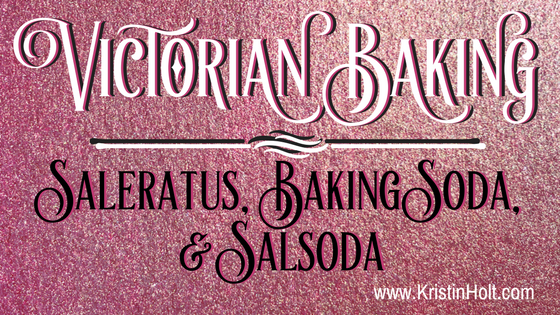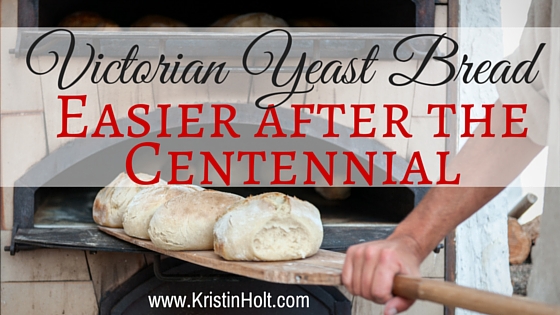
by Kristin Holt | Apr 12, 2021 | Articles
Victorian Jellies were all the rage throughout nineteenth-century America and Victoria’s British Isles.
Through mid-century, cooks relied on various gelling agents to set up their moulded creations. Two of those articles from the sea–isinglass and Irish moss–are illustrated by means of Victorian-era recipe books and newspaper advertisements.

by Kristin Holt | Feb 6, 2018 | Articles
Rotary Egg Beaters are an American Victorian invention–and came along early enough to make a significant difference to home cooks…early enough for homemade Angel’s Food Cake! So why, then, do so many recipes insist upon beating the egg whites by hand–for a full hour? Why not use the newly patented, amazingly successful invention?

by Kristin Holt | Dec 30, 2017 | Articles
Today, December 30th, is National Bicarbonate of Soda Day.
Why recognize and celebrate such an obscure “foodie” day?
Victorian-era recipes containing saleratus, pearl ash, baking soda, baking powder (and more) can be confusing… and evoke a million questions. When were each used? Which were Victorian-era developments? Which did 19th century cooks prefer?

by Kristin Holt | Jul 2, 2016 | Articles
Auguste Carlier published MARRIAGE IN THE UNITED STATES in 1867. Section VI, titled “Marriages in the West”, This sheds light on the attitudes and perspective of Victorian Americans toward marriage, setting the west, mail-order brides, correspondence courtships, and courtship in general. The small section, provided within this article, is definitely worth a read!

by Kristin Holt | Oct 19, 2015 | Articles
At the Centennial Exhibition in Philadelphia, Pennsylvania, Charles Louis Fleishmann offered pieces of freshly baked bread made with the world’s very first commercially prepared yeast from an exhibit modeled after a Vienna Bakery. An increase demand for Fleischmann’s yeast soon followed, bringing about the building of Fleischmann plants in New York. In this article, I share five key concepts about 19th century bread baking that stood out as surprising key concepts–and I’m a bread baker…so finding myself caught off guard by such research was really something.













